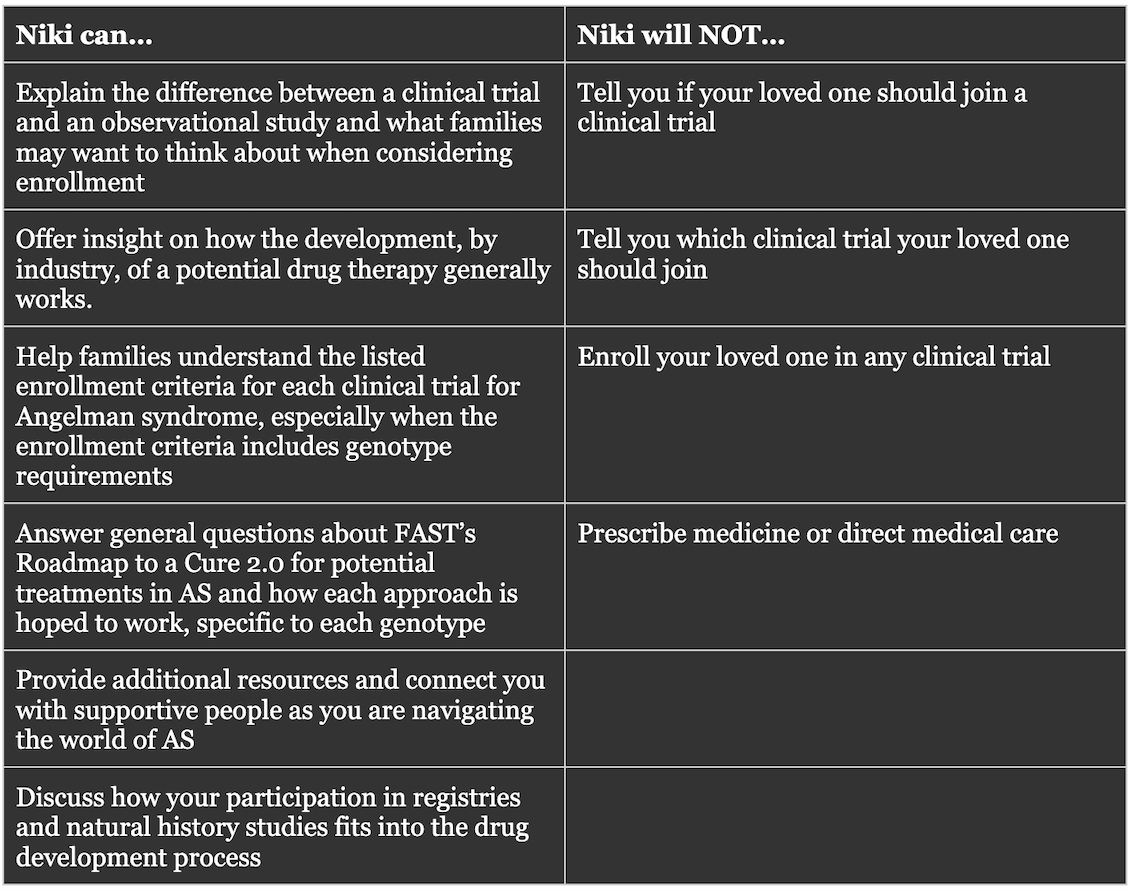We’re thrilled to have Niki Armstrong join the FAST team. Niki is a certified genetic counselor by training and has years of experience helping families navigate clinical trials – which means educating families so that they can understand the ins and outs of participating in studies and clinical trials. The end goal is to help families make informed decisions for their loved one.
You may have met with a genetic counselor when your loved one was initially diagnosed or to help coordinate family member testing. Niki’s role at FAST is slightly different–she can still help answer those AS genetics questions, but now, from the perspective of a genetic counselor specializing in Angelman syndrome.
The table below breaks down how Niki can add value to the AS community and what she will NOT do, based on her training and experience.
It is important to know that you should always talk to your loved one’s healthcare team and/or the study team when you are considering enrolling in any clinical trial.

As healthcare professionals, genetic counselors are trained to help families understand complicated scientific and medical information and then use that knowledge to make the best choices for their loved one and their family as a whole. Ultimately, any decisions about participating in a clinical trial should be made by the family in collaboration with a health care team who know the individual living with AS and are familiar with the research.
Here are some examples of questions families have asked:
My child is 6 years old and has a deletion. Which clinical trials are options for him?
What is the difference between a phase 1/2 and a phase 3 trial?
What are the different types of gene therapies?
I would like to participate in research, but a clinical trial is a big commitment. Are there any other studies we could participate in that could help advance research in AS?
I’m really interested in better understanding CRISPR. Can you explain how that works?
My brother is 32 and has UPD. Which potential therapies in development could be options for him?
What is a “basket” study?
What should we consider when we’re thinking about a clinical trial?
At FAST, we understand that every advance in drug development means new things to learn— and AS is already very complicated. Niki is here to help answer questions and direct families to resources.
To connect with Niki, click here.